The Academic Centre for Healthy Ageing (ACHA) is a new research centre improving care and support for older people, by connecting local people to health and care staff.
Below you’ll find answers to frequently asked questions.
Further down this page, there’s a list of helpful terms to understand.
If you have any further questions please get in touch.
People are living longer: we want to help ensure older age is as healthy, independent, and enjoyable as possible.
North east London has an ageing population: north east London has one of the fastest-growing populations of the UK and an increasing number of older people. There are significant health inequalities in the local population in East London, with people often dealing with multiple health problems earlier in life.
There are gaps in healthy ageing and frailty research: There is little research evidence that has so far been applied to NHS policy and practice. And there is still a lot to understand about how best to identify and manage frailty. ACHA wants to bridge these gaps by bringing research in to local health and care services. And enabling the development of proactive evidence based interventions, to be delivered by a capable workforce across sectors and services, targeted to those at risk, to improve individual and population outcomes.
ACHA is centred around improving care and support for older people in north east London.
We will involve patients, the public, carers and community groups to:
- Identify the local health and care issues preventing healthy ageing
- Carry out practical research in real world ‘frontline’ care settings
- Produce high quality evidence of what actually works
- Use this evidence to change and improve services for local people.
We’re a health and care system enabler, closely connected to the redevelopment of a large general hospital:
Being based within Whipps Cross Hospital, ACHA is connected into the many organisations in north east London that are shaping and improving local health and care services to become a centre for care excellence focused on healthy ageing and care for older people.
Our research happens where patient care happens:
All our research will happen in real world ‘frontline’ care settings and involve patients and caregivers. Because of this, we can produce high quality evidence of what works. Connecting with national experts and networks, we can use this knowledge to change services to better support people as they grow older.
We’re upskilling the workforce:
We’ll help people working in health and care access research career opportunities and education and training programmes. Please read the next questions for the details.
Access to research career opportunities:
ACHA aims to support and encourage research career opportunities. Encouraging those in roles less traditionally associated with research to get involved, such as nurses, allied health professionals, health visitors, ambulance staff, or care home workers.
ACHA will work with local health and care partners to offer protected academic time working on research, supported by a permanent senior academic faculty and infrastructure. Employers will be reimbursed for staff time spent in these academic activities.
Access to education and training:
ACHA creates a unique opportunity to develop, test and deliver new education and training programmes in the local community.
We will apply the results of ACHA’s research to change how care is delivered for people living with frailty and multimorbidity, helping reshape, upskill and grow the local health and care workforce.
Patients benefit from improved care, and caregivers have new opportunities for career development.
The research, education and training opportunities ACHA creates will help to attract, retain and develop staff, particularly in posts which have previously been hard to fill.
Over five years, the ACHA team will build a multidisciplinary academic faculty co-located at Whipps Cross Hospital (part of Barts Health NHS Trust) and Queen Mary University of London.
ACHA will connect to a network of partner care provider organisations working together to improve care, to ensure full academic integration with the evolving local health and care system and economy.
In 2023, we were awarded £6.6m from Barts Charity to establish ACHA, in collaboration with Queen Mary University of London and Barts Health NHS Trust.
This signals a major investment in the health and wellbeing of the local community, which is disproportionately affected by health inequalities.
Helpful terms to understand

H
Health and care system
All the different organisations that provide health and care services and support to patients and carers through many different roles, responsibilities and specialities. Watch NHS England’s video to understand this further.
Healthy ageing
Healthy ageing involves creating supportive environments for people to stay active and engaged throughout their lives. Even with health issues, individuals can age well if managed properly. Both the WHO and UK Government recognise ‘productive healthy ageing’ involves financial security, finding purpose in activities like work or volunteering, maintaining good relationships, and staying physically and mentally fit.
E
Evidence-based
Making decisions based on scientific proof from well-done research.
L
Living Lab
This is the term used by academics to describe research that happens in the real world, rather than controlled laboratory settings. Living labs put emphasis on patient involvement and engagement, with people actively participating in the research from creation, through to testing and feedback.
M
Multidisciplinary team (MDT)
People from different professional backgrounds who all work together to make complementary contributions to patient care.
Multimorbidity
The presence of two or more long-term health conditions. It is more common in older adults.
P
Patient and public involvement and engagement (PPIE)
Activities that involve people at a collective level, such as in the design, planning and delivery of health and care services.
T
Transformation
A transformation programme or service transformation is the process of changing and improving care and support for patients.
Further help with terms:
The King’s Fund website has a ‘jargon buster’ page with more terms that are frequently used in health and care.
Can’t find your answer here? Please contact us.
Contact us




